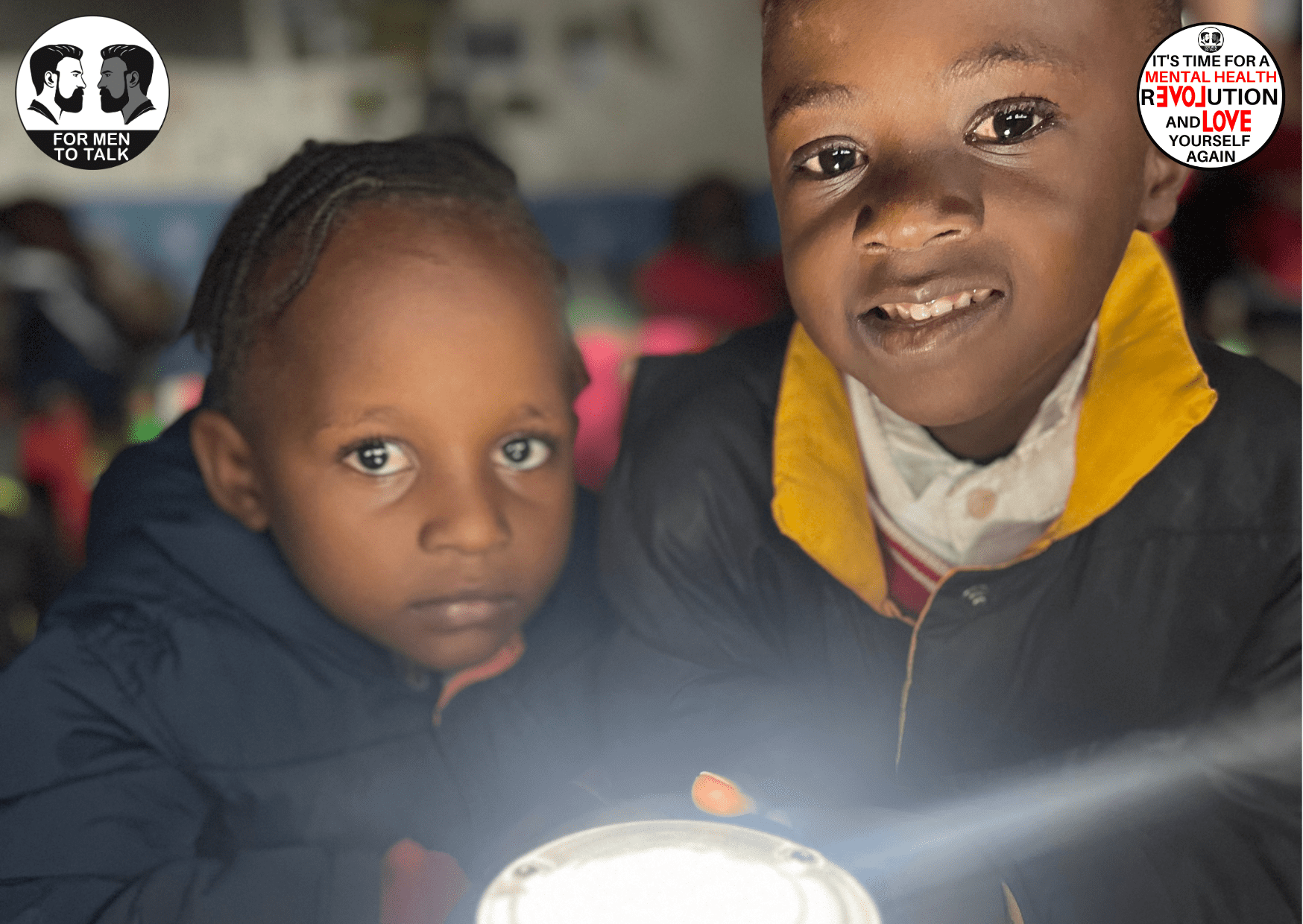Taking gas and electricity for granted. Thank you Portable Power Technology for donating LED solar lights

By Luke Newman founder of ‘For Men To Talk’.
On my recent ninth humanitarian trip to Nakuru, Kenya, I witnessed firsthand the stark reality of life without the basic conveniences many of us take for granted: gas and electricity. Though I was unable to participate in the home visits this year due to other commitments, my fellow volunteers shared poignant stories of the conditions some families endure. Imagine a large family living in an 8ft by 8ft space, without access to clean water, electricity, or gas, and with minimal furniture. This is the harsh reality for many in this community.
One of the most profound lessons from these trips is realising how often we overlook the fundamental amenities in our lives. Gas and electricity are so seamlessly integrated into our daily routines that we rarely stop to consider what life would be like without them. We flip a switch, and light fills the room. We turn a knob, and a stove ignites, ready to cook our meals. These simple actions are second nature to us, but in Nakuru, they are luxuries out of reach for many.
I was fortunate to bring along many LED solar lights, generously donated by Portable Power Technology. Each family received one of these lights, a small beacon of hope to brighten their nights. In total, twenty-three families benefited from these solar lights during our visits. For these families, the solar lights provided a semblance of normalcy, a way to illuminate their homes after sunset, and a tool to enhance safety and productivity.
One particularly upsetting moment was witnessing a student from West End Academy with a severe burn on his arm, caused by boiling water. Such incidents underline the dire need for better living conditions, safety measures, and access to gas and electricity in these households. Without these essential resources, families are forced to rely on dangerous methods to cook and heat their homes, leading to accidents and health issues.
This experience has been a stark reminder of how privileged we are to have easy access to gas and electricity. These utilities not only provide comfort but are also critical for health, safety, and overall well-being. In many parts of the world, lack of access to these basic amenities means that everyday tasks become arduous and dangerous.
For instance, without electricity, children struggle to study after dark, families cannot safely store food, and essential medical equipment remains unusable. The absence of gas means that cooking often involves open fires or makeshift stoves, increasing the risk of burns and respiratory problems from smoke inhalation. These challenges are a daily reality for many families in Nakuru and other underserved communities around the world.
Through the work of humanitarian efforts and the generosity of donors, small but impactful changes can be made. The solar lights we provided are a testament to how technology and compassion can come together to improve lives. However, these efforts are just a drop in the ocean of what is needed. Sustainable and scalable solutions are essential to bring lasting change to these communities.
Reflecting on my experiences in Nakuru, I urge everyone to appreciate the conveniences we often overlook. Gas and electricity are more than just utilities; they are lifelines that enable us to live safely and comfortably. By recognising our privilege and supporting initiatives that provide these essential resources to those in need, we can help build a world where everyone has access to the basic amenities required for a dignified life.